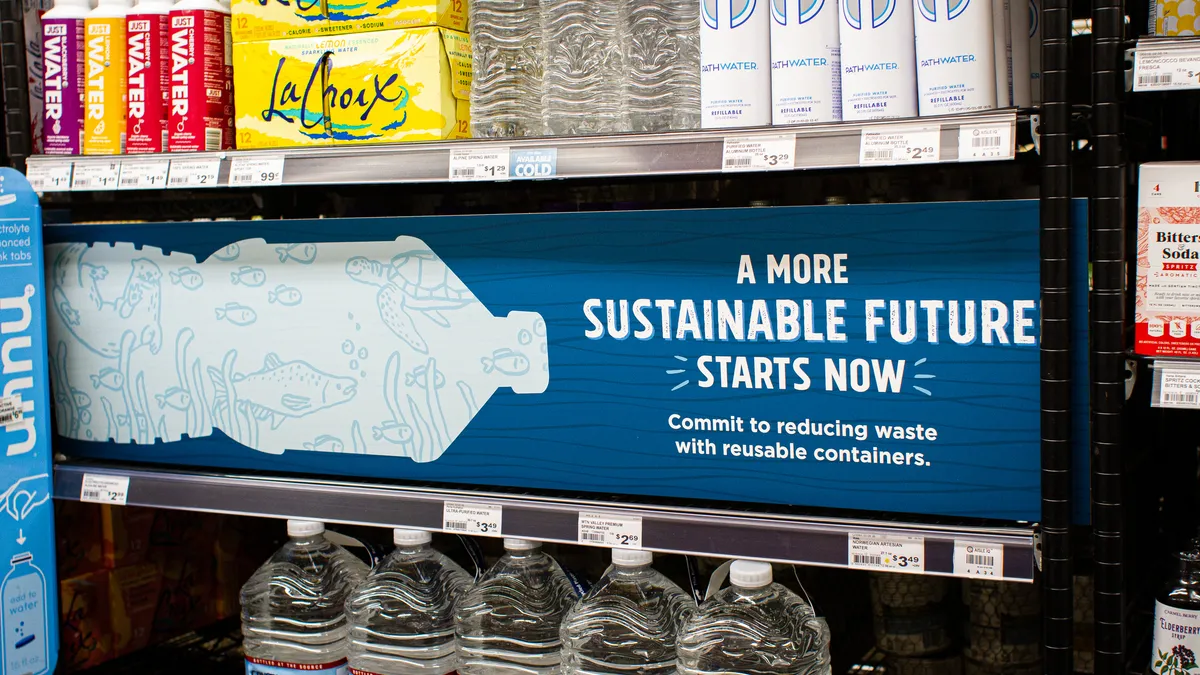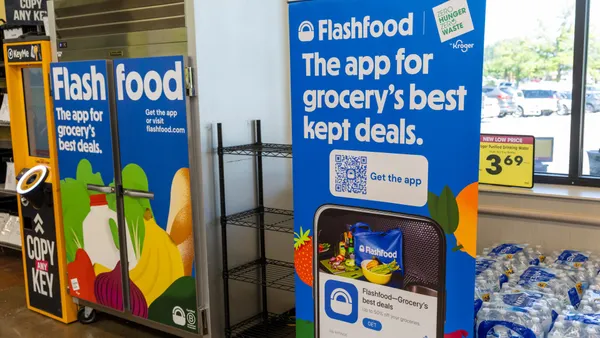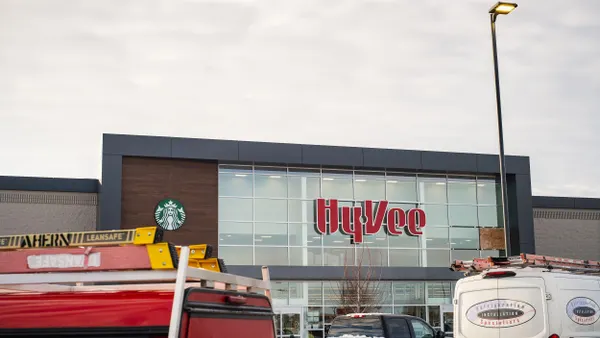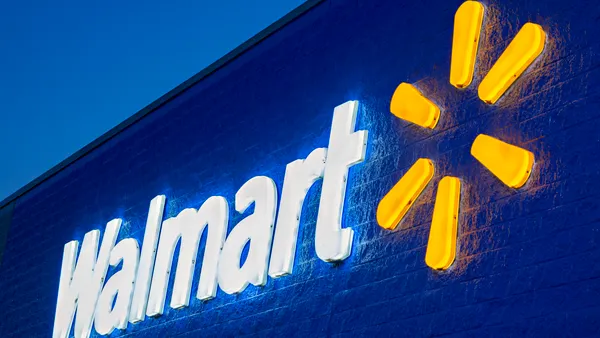Grocers in the U.S. need to take more action on the sustainability front and get started sooner rather than later.
That's the viewpoint of Aaron Daly, former director of energy management at Whole Foods Market and now a principal at the Ratio Institute, a non-profit that supports environmental stewardship efforts by the grocery industry.
“Food retailers are quite honestly behind the times when it comes to sustainability. You can look at many other types of organizations and they are a lot further down the path,” Daly said.
That’s largely due to the industry being slower to adapt to change and already juggling a lot of initiatives, from food safety to running retail operations, he said, noting sustainability can be daunting to tackle without sufficient expertise.
“It's our view that there was really an inflection point in the food retail industry in North America where, if you look in the rearview mirror, the standards that retailers were held to by investors, by employees, by the general public, by customers, were pretty light, and that is rapidly changing,” Daly said.
Since the Ratio Institute's launch in early 2020, the non-profit has seen a "dramatic uptick" in investor focus on sustainability, Daly said. That, in particular, is helping to light a fire under retailers to take more “substantive” climate action.
Echoing that, Albertsons, which announced a set of environmental, social and governance (ESG) initiatives and new sustainability targets this week, is seeing investor inquiries about its ESG work increase, Suzanne Long, the company's chief sustainability and transformation officer, said in a recent interview. Customers and associates have also inquired about the grocery chain's efforts as well, she said.
But grocers face a myriad of challenges, from determining how to prioritize the numerous areas impacting the planet to figuring out how to publicly share their progress, said Daly, who held the director of energy management at Whole Foods from 2013 to 2020.
Grocery Dive talked with Daly about which sustainability areas he's seeing grocers show the most interest in, where they can make big steps with tight wallets and how they can step up their overall commitment to sustainability.
Where grocers are investing in climate action
Sustainability touches a wide variety of business activities, but the Ratio Institute's Sustainable Food Retail Certification focuses on what it calls 17 "core" areas, like renewable energy, toxics and water efficiency.
The one that has garnered the most attention so far is refrigerant management, Daly said, due to recent legislative changes and retailers hearing about it more from their service providers or equipment suppliers.
Food waste is another top area, due to the number of new solutions available for retailers to choose from. Packaging and plastics are also key as industry stakeholders and external influencers place more emphasis on the potential consequences of microplastics finding their way into the oceans, food and people's bodies, Daly said.
Refrigerants should be the first area food retailers tackle because there’s a “huge opportunity” to save money and make a sizable reduction in their environmental footprint, Daly said.
There’s also quite a bit of innovation in the space, like micro-distributed systems that use hydrocarbons as refrigerants. Retailers in Europe are already turning to micro-distributed systems, which can have the added bonus of plugging directly into wall-mounted electrical outlets, allowing grocers to easily move their refrigerators.
“Instead of adding a whole new refrigeration system in the back of the house, you just add a few of these plug-in ones. Or maybe you're going to retire a certain section of your system, and so you can replace equipment as you go,” he said.
Daly recommends grocers take a phased approach to work on refrigerants across their portfolios, like replacing equipment in stages rather than all at once. One way grocers can make incremental investments is by adding glass doors on open refrigerated display cases. It’s a project Daly said he undertook during his time at Whole Foods.
Harris Teeter, for example, has signs at one of its Washington, D.C., stores noting that adding glass doors reduces energy consumption from those cases by 70% and makes sure that products are kept at the proper temperature.
Meanwhile, food waste has received considerable attention from the industry, with the Food Industry Association recently calling on grocers to step up their efforts in this area.
Food waste is a shared problem between grocers, customers and suppliers, but Daly said grocers should boost their data and measurement tactics to help combat the issue.
“The majority of food retailers do not have an adequate system for measuring what food is wasted,” he said.
Fortunately, the tools available to grocers, like inventory management, are continuing to improve. Grocers can also provide training for employees on proper upkeep of refrigeration equipment and add better refrigeration, like glass doors, to reduce food spoilage, he said.
Daly noted retailers also have a number of food-diversion options available, like turning food waste into animal feed, composting and reusing soon-to-expire food in stores. Cooking food extends its shelf life, so grocers can take meat nearing its expiration date and turn it into soup, for example, he said.
Overlooked opportunities
Solar energy is another "huge opportunity” for food retailers to reduce energy consumption, which can drive down costs but is often overlooked, partially due to its complexity, Daly noted.
Solar power can be tricky to manage, especially for grocers with limited resources and access to expertise to help them. Upfront costs for accessing electricity sourced from the sun through a lease or power purchase agreement can be steep, and larger organizations often have better financing terms and the ability to tap in-house resources or hire experts, Daly noted. Meanwhile, grocers that want to have solar energy-generation facilities on site but don't own their building may run into the issue of whether or not they can use the rooftop.
Instead, grocers may turn to energy-efficiency measures with existing equipment that they are looking to change out.
One area, building electrification, which involves replacing gas- or propane-burning appliances with clean and efficient ones, may allow grocers to tap into incentives from certain states, like New York and California.
Another area Daly said grocers can get a head start on is one he worked on during his time at Whole Foods: adding electric vehicle charging infrastructure, which he said can help draw customers in.
“The idea there is you want to be in a store about maybe a half-hour, 45 minutes [while you] do your shopping. And that's about the amount of time it takes to charge up your electric car. So it's a really good alignment,” Daly said, adding grocers can offer discounts for electric vehicle drivers to encourage them to come in and shop.
Improving how they share their progress
Figuring out what to tackle on the sustainability front and then how to go about it can be difficult enough. But grocers also face additional challenges with publicly sharing their goals and progress.
ESG reporting is a “whole can of worms" for grocers, and investors are pushing for more information, Daly said.
Reporting can vary quite a bit for grocers of different sizes, Daly said. He noted that the Science Based Targets initiative, Global Reporting Initiative and CDP, a nonprofit that assists companies and cities with environmental impact disclosures, can help grocers figure out which information to provide and how to share it.
“When you look at corporate reporting on sustainability, particularly on climate change, you don't need to reinvent the wheel,” he said.
Still, reporting can be very complex and frustrating for grocers unfamiliar with the practice, he said. The Ratio Institute is looking to help solve this problem by developing a reporting template and guide, which is geared toward food retailers who have never done a sustainability report before and don’t know where to start, he said.
The Ratio Institute’s sustainability certification program also includes diversity, equity and inclusion as one of its 17 core areas.
“If a food retailer says they're doing sustainability [work] or sustainability is important to them, and they don't mention diversity, equity and inclusion, [and] when they don't mention the impact on people of their operational choices, they're completely missing the ball,” he said.
For example, undergoing climate-friendly actions can draw in and strengthen employee morale on issues they have identified as important, while creating a sustainability team internally can provide employees new career path opportunities, Daly said.
For example, Metcalfe's Market, a fourth-generation, family-owned grocer with three stores in Wisconsin, leverages its sustainability achievements, which include being 100% green-powered, and ongoing work in the space as a recruiting and retention draw.
Daly advises grocers to start taking action, even if it’s a small step, to start their sustainability journey.
“It's a scientific principle that an object in motion will stay in motion and an object at rest will stay at rest," Daly said, referencing Newton's first law of motion. "And I think when you look at a lot of retailers today, they are that object at rest. They've been doing the same business for 50 years or longer.”












